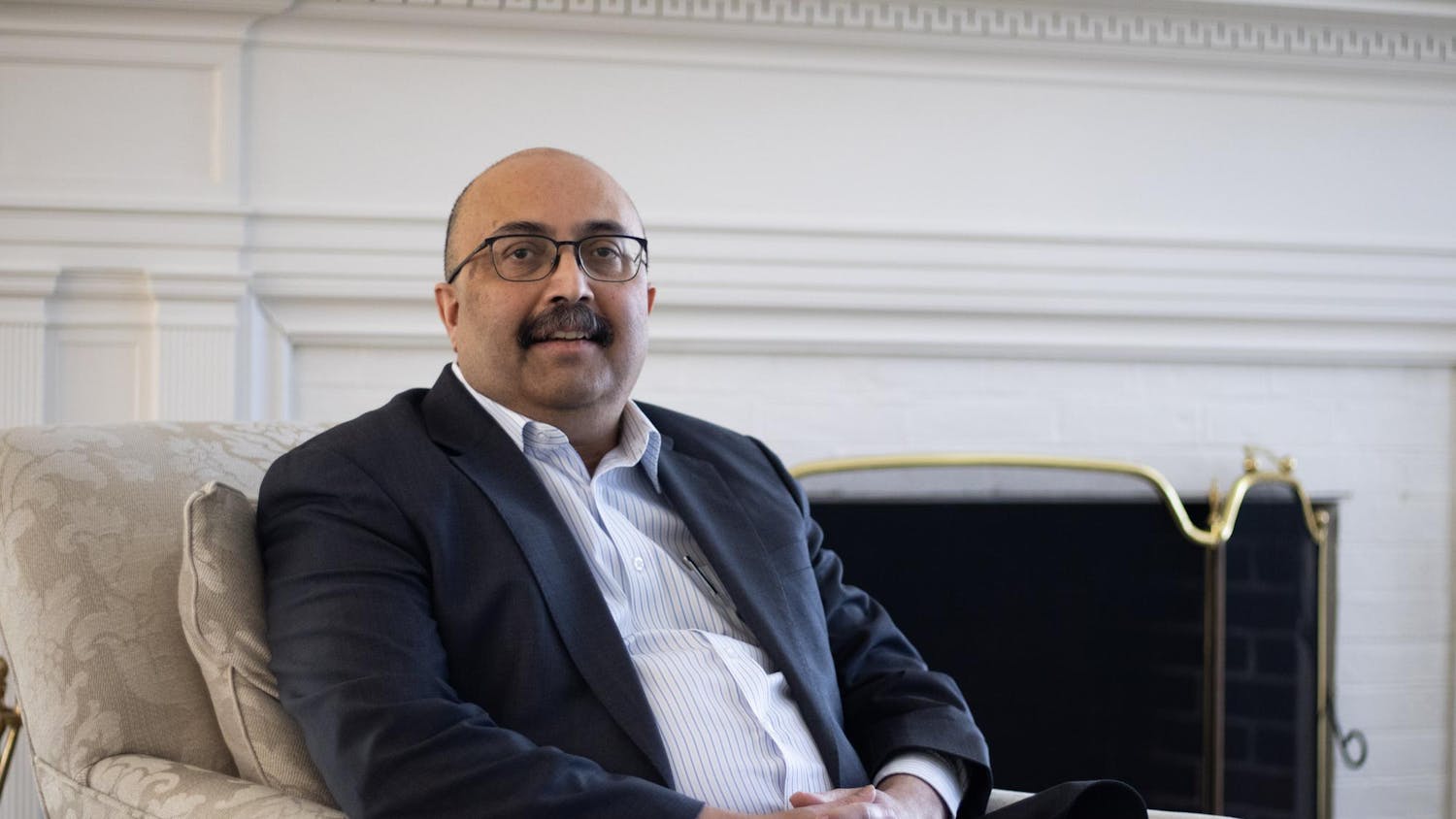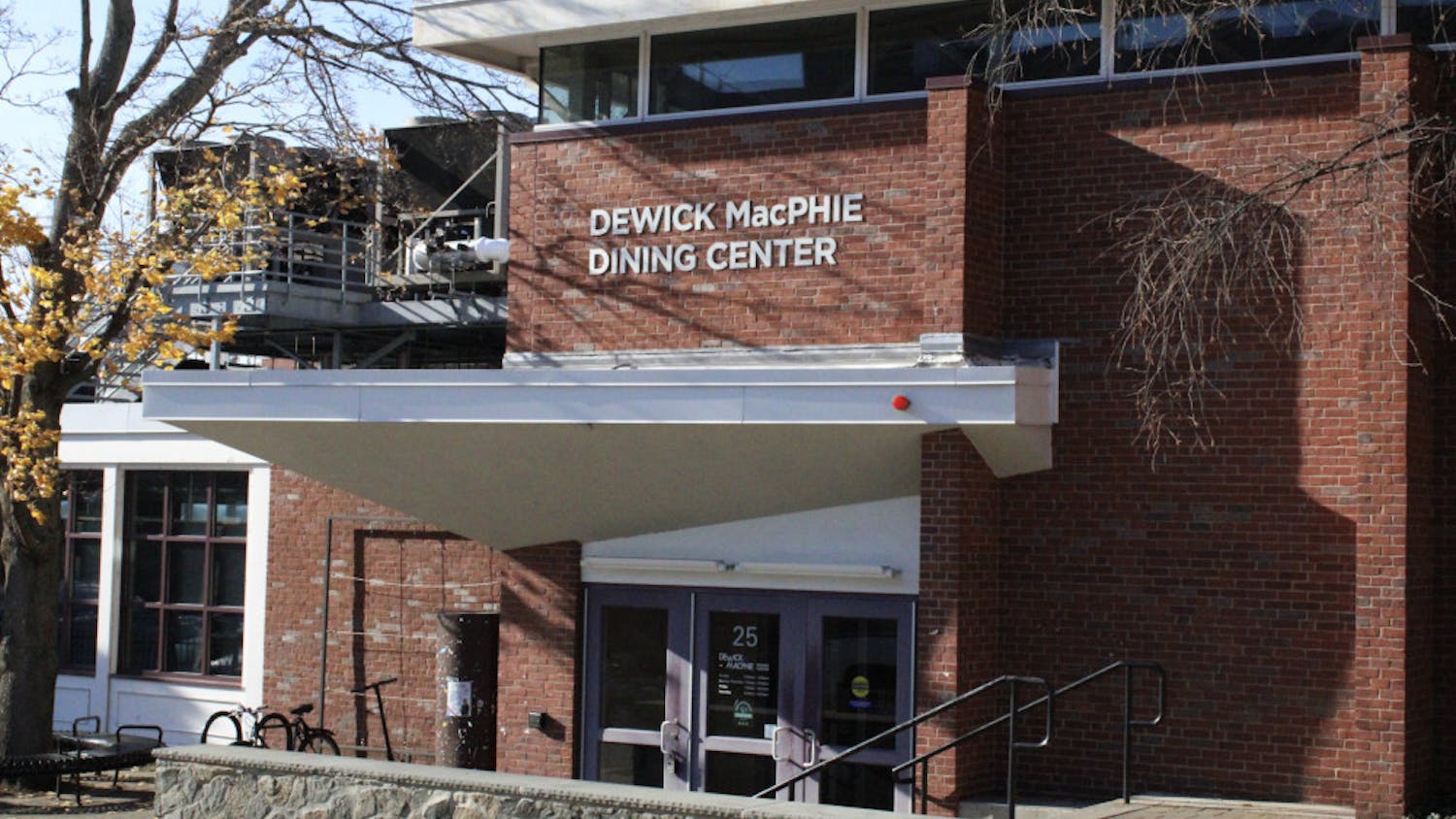Admiral James Stavridis (F '83, F '84) stepped down on Aug. 1 as Dean of The Fletcher School of Law and Diplomacy after five years in the position. Stavridis had served in multiple senior leadership roles in the U.S. military prior to assuming the deanship, including as head of the U.S. Southern Command from 2006 to 2009 and NATO's Supreme Allied Commander Europe from 2009 to 2013. Stavridis is now working with The Carlyle Group, a private equity firm.
Stavridis’ departure was announced in a May email from University President Anthony Monaco and Provost and Senior Vice President ad interim Deborah Kochevar to the Tufts community.
“A dynamic leader, a wonderful partner, and a prolific scholar, Jim has advanced Fletcher’s reputation and strengthened its standing as a premier school for the study of international affairs,” they wrote.
In a separate note, Stavridis praised Fletcher’s students for their work in strengthening the school during his tenure as dean.
“Whether we were conceptualizing a new program or initiative, tackling budget challenges, or addressing a host of other intricate matters, the intelligence, grace, adaptability, and problem-solving skills they consistently demonstrated are second to none,” he wrote.
Stavridis’ impact following his Fletcher tenure
Over his five years as dean, Stavridis expanded Fletcher’s academic offerings to include an academic concentration field in gender analysis in international studies, in addition to growing the school’s focus on cybersecurity. Fletcher worked with the Department of Computer Science in the School of Engineering to establish a joint position and hired Susan Landau in 2017 as a full-time, tenured bridge professor, according to Fletcher's Executive Associate Dean Gerard Sheehan.
Sheehan, who will serve on the search committee for a new dean with fellow administrators, faculty, staff, students and members of the Fletcher Board of Advisors, further emphasized Stavridis’ work to enhance the school’s offerings in the field of Russian affairs. Fletcher lacked faculty who spoke Russian and its course offerings on Russian and Eurasian studies were limited when Stavridis first arrived.
“He obviously and correctly pointed out that Russia remained a critical country for a school of international affairs to focus on,” Sheehan said. “He worked to help us establish a program in Russian and Eurasian studies, and indeed we have a very strong program at this point.”
Sheehan added that Fletcher hired Chris Miller, a leading scholar on Russian studies who recently published his second book on the matter, and established a partnership with Moscow State University of International Relations, Russia's state-run and most prestigious international affairs university.
Stavridis was also instrumental in establishing a formal relationship between Fletcher and the Atlantic Council, a Washington, D.C. think tank focused on the United States’ relationship with Europe as well as other regions around the globe, Sheehan said.
Fletcher Professor of International Law Ian Johnstone, who served as Fletcher's Academic Dean from 2013 to 2015, will serve as Dean ad interim. Johnstone believes the transition period will also be one of consolidation in which the school continues to focus on many of the new programs and initiatives started under Stavridis’ leadership, while also ensuring the school’s core programs continue to receive sufficient attention.
One of the new initiatives is an online Master of Global Business Administration, according to Johnstone. The program will allow working professionals to receive a combined education in business and international affairs.
“The curriculum is being developed this year, and we hope to start enrolling students as soon as May 2019,” Johnstone said.
Johnstone added that the school’s partnerships with the College of Europe in Bruges, Belgium where students can receive a joint degree in Transatlantic Affairs, and the Washington, D.C. program of Syracuse University's Maxwell School of Citizenship and Public Affairs are also priorities. He noted that allowing students to take Maxwell-in-Washington courses, in addition to the Atlantic Council relationship, are a few ways in which Fletcher students can have more exposure to education and work experience in the nation’s capital.
“We’ll have a bigger footprint in Washington, so students who come to Fletcher can also feel that they’ve got that possibility of spending a little time there,” he said.
Fletcher has historically had a significant number of international students — between 40 and 50 percent — and Johnstone is committed to maintaining that range during his interim tenure. This is becoming a larger challenge as Fletcher competes with more graduate programs in the United States, in addition to in Europe, the latter group of which tend to be less expensive.
“We still offer the best, but if they can get a program that’s almost as good for a quarter of the price or a 10th of the price there’s a real trade off that they have to make,” Johnstone said. “We have to work hard to ensure that we keep attracting both U.S. students and non-American students. And to do that we frankly need to be able to provide substantial financial scholarship aid.”
Both Johnstone and Sheehan were complimentary of all that Stavridis had accomplished for the school. Johnstone stressed the work Stavridis had achieved in raising Fletcher’s public profile through his published works and televised appearances as the chief international security and diplomacy analyst for NBC News and MSNBC.
“The impression I got from conversations is that people who had never heard of the Fletcher School before suddenly had heard of it because Admiral Stavridis was on television or quoted in a newspaper,” he said.
Sheehan added that Stavridis is a naturally optimistic person, which his colleagues enjoyed having present over the past few years.
“His attitude is one of those things where he believes the best in everybody and I think that brings out the best in everybody,” he said.
The search for a permanent dean
The search process for a permanent replacement will be carried out in ways similar to how deans were selected in the past. The aforementioned search committee includes Kelly Sims Gallagher, professor of energy and environmental policy; Alan Solomont (A '70), dean of the Jonathan M. Tisch College of Civic Life; and Kinsey Spears and Stefan Tschauko, both of whom are Fletcher students, according to a list provided to the Daily by Kochevar.
Kochevar added that everyone on the committee has accepted their invitation to serve and the first meeting will be next month. Tufts is being assisted by national search firm Isaacson, Miller, which is also helping with the provost search.
Isaacson, Miller will meet with the committee, draft a position description, and develop a candidate pool, according to Kochevar. Fletcher faculty and alumni have also been invited to nominate candidates for the deanship.
“We have a number of names already accumulating in a database,” Kochevar said. “It’s really quite encouraging. Fletcher has such a strong reputation and Dean Stavridis has left the school in very good condition.”
Kochevar declined to comment on what specific qualities Tufts will be looking for in a new dean prior to the position description being formally drafted.
“I think history is a good indicator though, if you look back at the types of deans that Fletcher has had,” she said. “It’s a distinguished group.”
As far as the overall timeline for the search, after names have been compiled from the position description, the search committee will narrow the pool to preliminary and final lists, which will likely all play out over the course of this academic year, according to Kochevar.
“We’re very fortunate to have Professor Ian Johnstone who is serving as Dean ad interim,” she said. “He’s someone who has a lot of respect from his colleagues, who is very well-suited to lead the school in an interim position. That’s a key piece of being able to confidently do our search and have the school still advancing and doing well.”
Stavridis departs Fletcher after five years as dean

The Fletcher School of Law and Diplomacy is pictured on April 20, 2018.





